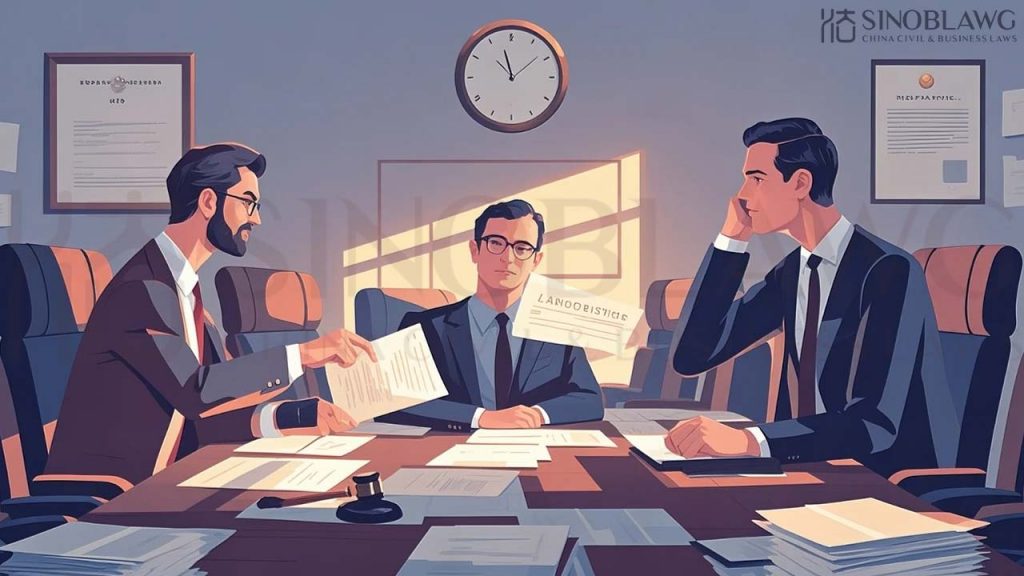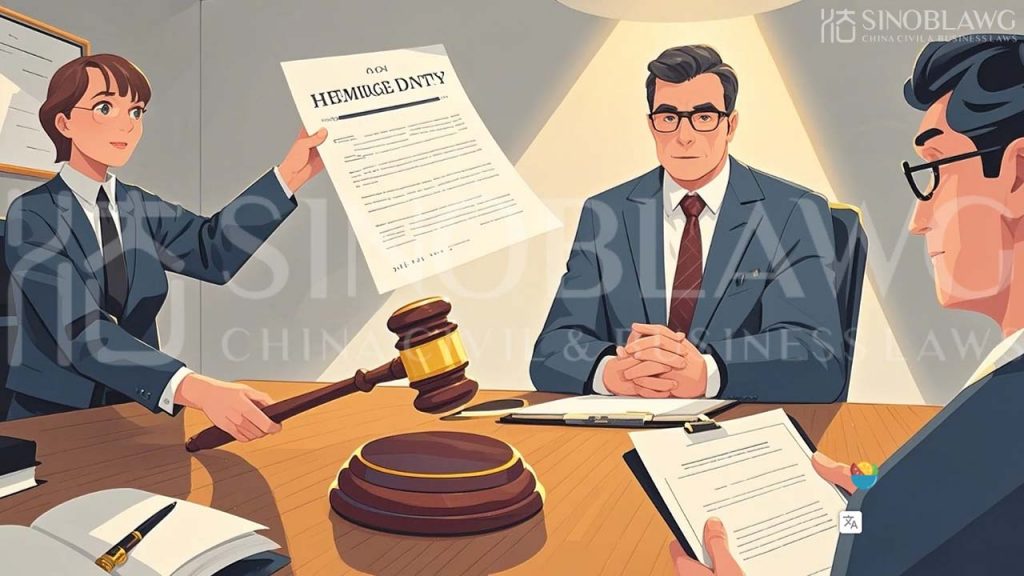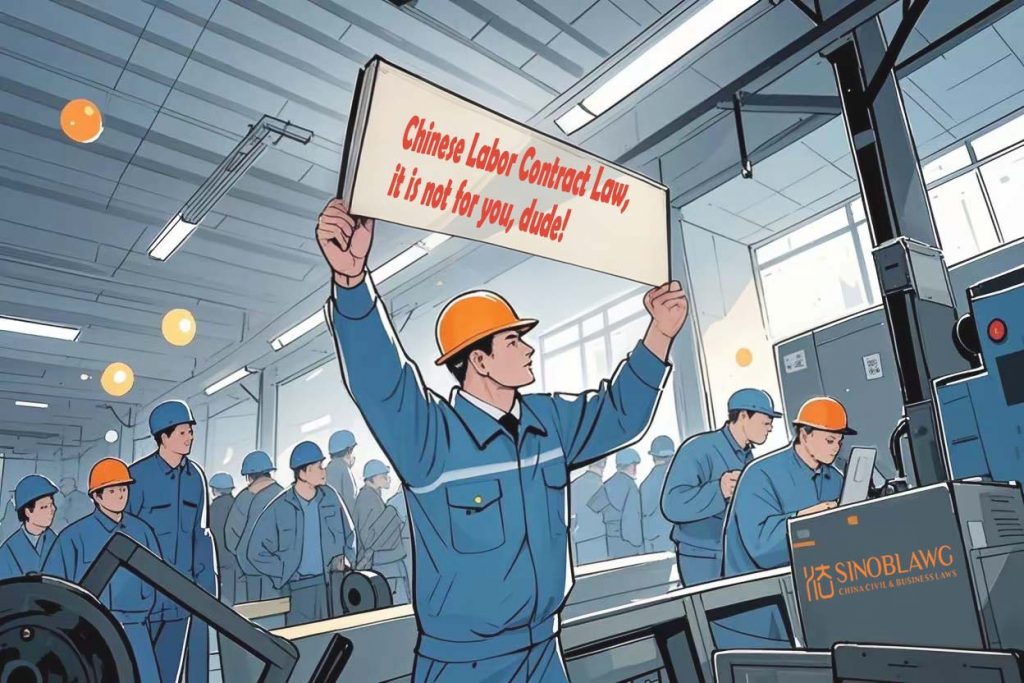I. Basic Facts and Legal Concepts in the Ongoing Case
Shanghai Jahwa Corporation, a listed public company in China, was not happy with its general manager in an internal corporate struggle, so Jahwa’s board of directors made a decision in May of 2014 to fire the general manager citing the manager’s personal responsibility for loopholes in Jahwa’s internal control polities revealed by an auditing firm. Behind the scene is the tug of war for power between the biggest shareholder and the company’s management.
Before going further, I would need to explain the concept of “general manager” in China Company Law. A general manager is a top managerial position immediately below the board of directors in a company under China Company Law, either a limited liability company or a joint stock corporation (or corporation limited by shares). A LLC company may choose not to install its general manager but a joint stock company must have a general manager position in its corporate governance structure. So don’t mix the general manager with other managers at departmental level within a corporate organization.
II. Arguments of the Parties to the Case
The general manager, Wang Zhuo, a veteran steward for Jahwa, was of course not happy with the action. So he went to labor arbitration in Hongkou District alleging that his employment was illegally terminated by its company and claiming that his employment should be reinstated in the Company. According to Mr. Wang and his legal representative, the termination of labor relationship was illegal because the Company’s action had not legal ground under China Labor Contract Law whose Section 39 explicitly provides for six occasions in which an employer can fire its employees. In labor law practice, it is clear and true that an employer cannot fire its employees if none of the six circumstances is in existence. Otherwise, it is an illegal termination or firing. And in the case of illegal termination, China Labor Contract Law makes it clear that the employee can sue to reinstate his or her position in the company.
On the other hand, Jahwa company rebutted by citing a provision from China Company Law which is also crystal clear in conferring the power to hire and fire the general manager on the board of directors of the a company. In other words, within a company, the employment issue of a general manager in terms of hiring and firing can only be handled by the board of the directors instead of the human resources department due to the high-ranking position of the general manager.
As a result of law departmentalization, labor laws and business laws are regarded as belonging to two distinct areas of laws, namely, social laws and commercial laws. However in the case of general manager employment issue, the almost parallel China Labor Contract Law and China Company Law suddenly come to a junction point where in one case the adjudicating body shall have to consider both labor law and corporate laws. Unfortunately, it is a highly contentious issue in both theory and practice, and there is no legislation shedding light on this.
III. Arbitral Award by Labor Arbitration Commission
In such a situation, in August of 2014, the labor arbitration commission in Hongkou District delivered its arbitral award supporting Mr. Wang’s claim for reinstatement of his general manager position in Jahwa company. Immediately, Jahwa company declared that they will for sure sue to the court to revoke the labor arbitration award. Till the time of this post, there has been no report of court judgment made by Hongkou court.
The arbitral award (as reported by media, and I have not obtained a copy of that award) ruled that the board’s action to fire the general manager has no impact on the employment relationship between the general manager and the company, clearly recognizing and distinguishing two aspects of relationship between a general manager and the company, namely, the relationship of post/position (zhiwu guanxi, 职务关系) and relationship of employment (laodong guanxi, 劳动关系). No report of further explanation on the difference between the two types of relationships. I guess the labor arbitration commission find it an impossible mission to clearly define and differentiate the two relationships.
IV. My Comments on the Arbitral Award
How do you think of this award? Reasonable? Bizarre? Mistaken? Or absurd? With the issue of the arbitral award, it is quite strange to me that there are few articles commenting on the award on the internet by the legal community.
To me, this is a mistaken and absurd decision, misleading and highly confusing. The core mistake is for the arbitral commission to recognize and differentiate the so called the relationship of post/position (zhiwu guanxi, 职务关系) and relationship of employment (laodong guanxi, 劳动关系). The reasons for the mistake are:
(1) The first scapegoat to blame is the Chinese legislation. Why does China Labor Contract Law fail to acknowledge and distinguish the difference between ordinary employees and top corporate officers and directors? Does the failure by legislator mean directors and high officers should be treated in the same way as ordinary employees under China Labor Contract Law? By ordinary employees, I mean those employees in a company whose employment is outside of the attention of China Company Law.
Apparently, the failure is a substantial mistake in China Labor Contract Law. High officers of a company are so different from ordinary employees in that the former group is indeed in control of the latter group and from the perspective of ordinary employees, those high officers are actually representing the employer and they are bosses rather than employees. Such a fundamental difference warrant different treatments of the two groups of people in a company in term of administration of their employment and labor contracts. One of the different treatments finds its expression in China Company Law as mentioned above, namely, the hiring and firing of high officers is subject to the decision of the board of directors of the company.
Another difference in treatment should be in regard of the termination of the high officers’ labor contracts. While the China Labor Contract Law is intended to protect the weak group in workplaces, the stringent termination conditions under its Section 39 applicable to ordinary employees should not be equally applicable to high officers, in particular, the law should allow a company to fire its high officer outside of the prescribed six circumstances. After all, high officers are subjected to higher degree of duty of care and duty of diligence, as provided by China Company Law.
In judicial practice, there have been calls by judges that regard should be given to the difference between high officers and ordinary employees.
(2) As mentioned above, as a result of law departmentalization, in practice, labor laws are regarded as a distinct law department and in practice, China has also established a separate labor dispute resolution system requiring that all labor disputes shall be firstly submitted to the locally permanent labor arbitration commission (actually fundamentally different from commercial arbitration) which is expected to resolve disputes in 45 days of filing of the dispute, much more efficient than court solution.
Due to that, arbitrators in arbitration commissions who exclusively deal with labor disputes have scarce legal knowledge outside of labor laws, much less the most sophisticated company law.
The creation of the ” relationship of post/position (zhiwu guanxi, 职务关系)” is definitely arising from a misunderstanding of the China Company Law in terms of hiring and firing the general manager of a company.
China Company Law rightly notices the important role of the general manager in terms of corporate governance, a core concern and mission of the company law. Thus, it singles out a few high officers whose hiring and firing are decided by the board of the directors of the company which is different from ordinary employees who are hired and fired by the HR department that generally operates under the general manager. However, the different organs within a company (the board and HR department) are both operating in the name of the company. In this sense, the hiring of or conclusion of labor contract with high officers and ordinary employees is the same in nature, i.e. creating the labor relationship between the company and the person in question.
The high officers are perceived as bosses by ordinary employees on one hand but within the company, a general manager is subject to and in control of the board of the directors to some extent. In other words, the general manager and other high officers are also employees of the company.
After all, what does “relationship of post (职务关系)” mean under Chinese laws? It is empty hollow concept with no legal meaning.
V. Conclusion
So what should you do if you want to terminate your general manager? I can give you my answer but it is yet to be tested later.
My answer is: in addition to the 6 circumstances prescribed by China Labor Contract Law, a company can also terminate its general manager once it finds a legal ground in China Company Law for example, the general manager has violated its duty of loyalty. In other words, the company should not be limited to China Labor Contract Law only when it comes to the termination of its general manager and other high officers. Of course, such decision to terminate employment shall be made only by the board of directors.
In practice, it is highly advisable for companies to sign a good labor contract with their general managers in which it is clearly stipulated that general managers can be terminated for reasons beyond the those set out by China Labor Contract Law. With a good labor contract in place, the company can be much better off when a termination dispute arises.







There is an update on the cited case. You can read more here: https://www.sinoblawg.com/?p=1674